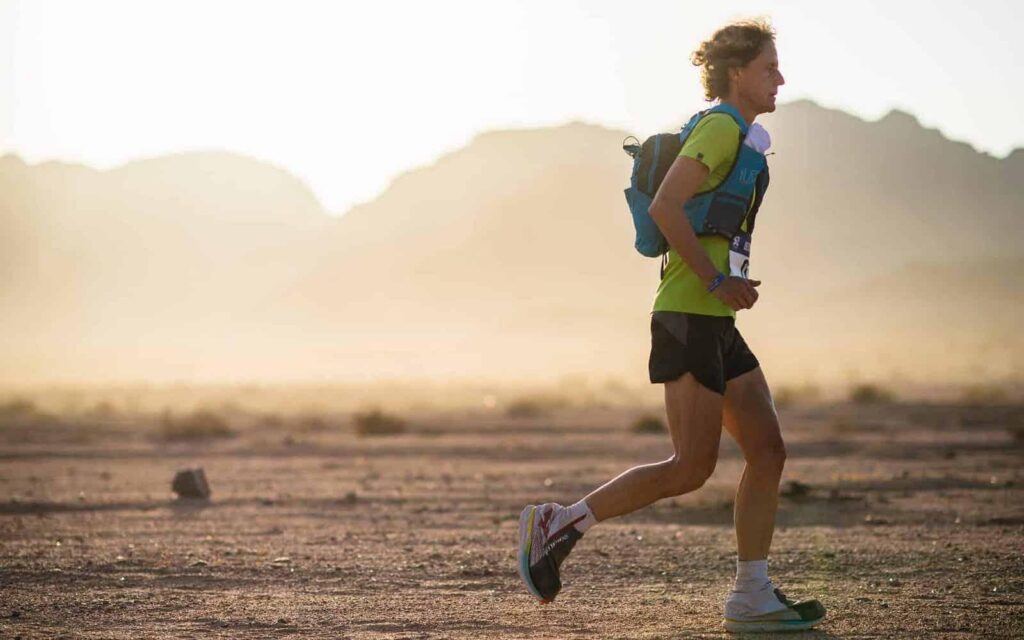A growing number of endurance runners are pushing their limits in ultramarathons, tackling grueling distances that test not only their stamina but also their physical resilience. Amid this surge in ultra-endurance events, concerns have emerged about the impact of such intense exercise on kidney health. Recent discussions and studies have questioned whether exercise-induced acute kidney injury (AKI) occurs commonly in these conditions or if the risks have been overstated. A new article published in Frontiers delves into the evidence, examining the relationship between ultramarathon running and renal function to separate fact from fiction in this high-stakes debate.
Ultramarathon Running and Kidney Health The Hidden Risks Explored
Recent investigations into the effects of extreme endurance events reveal that while acute kidney injury (AKI) can occur during ultramarathons, its manifestation under typical race conditions is less alarming than previously assumed. Studies indicate that transient rises in serum creatinine and other kidney stress markers often resolve quickly post-race without lasting damage. Factors such as proper hydration, pre-race conditioning, and immediate post-run recovery protocols play significant roles in mitigating renal strain. Moreover, environmental aspects like temperature and altitude, alongside individual variations in physiology, critically influence the kidney’s response to prolonged physical stress.
Key observations emerging from ongoing research include:
- Transient nature: Most kidney function alterations after ultramarathons return to baseline within 48-72 hours.
- Protective adaptations: Regular endurance training may enhance renal resilience against exercise-induced stress.
- Risk factors: Dehydration, NSAID use, and pre-existing renal conditions heighten susceptibility to AKI during extreme events.
| Condition | Impact on Kidney | Recovery Time |
|---|---|---|
| Hydration Status | Maintains perfusion, reduces injury risk | Immediate to 24 hrs |
| NSAID Use | Increases AKI risk by impairing blood flow | Varies, can be prolonged |
| Pre-existing CKD | Higher vulnerability to sustained damage | Weeks to months |
Understanding Exercise-Induced Acute Kidney Injury Mechanisms in Endurance Athletes
Endurance athletes push their bodies to extraordinary limits, often triggering complex physiological responses that can impact kidney function. During prolonged intense exercise, such as ultramarathons, the risk of acute kidney injury (AKI) is linked to a cascade of factors including dehydration, muscle breakdown, and altered renal blood flow. The resulting increase in circulating myoglobin from muscle damage, combined with reduced plasma volume, creates a perfect storm for temporary renal stress. However, in most cases under typical race conditions, these changes are transient and reversible, suggesting that classical markers of AKI might overestimate the true clinical risk in well-conditioned athletes.
Several mechanisms contribute to exercise-induced kidney changes, each interacting dynamically:
- Hemodynamic alterations: Intense exercise redirects blood flow toward muscles and skin, limiting kidney perfusion.
- Rhabdomyolysis: Breakdown of muscle fibers releases nephrotoxic substances, chiefly myoglobin.
- Inflammatory cytokines: Exercise-induced systemic inflammation can transiently impair tubular function.
- Oxidative stress: Free radicals generated during exertion may contribute to cellular kidney injury.
| Mechanism | Effect on Kidney | Is Injury Usually Reversible? |
|---|---|---|
| Reduced Renal Perfusion | Transient ischemia | Yes |
| Myoglobin Toxicity | Tubular obstruction & oxidative damage | Mostly |
| Inflammation | Cellular dysfunction | Yes |
Practical Guidelines for Ultramarathoners To Protect Renal Function During Training and Races
Maintaining optimal kidney health during the grueling demands of ultramarathon training and racing is crucial. Athletes should prioritize adequate hydration, but with a tailored approach-avoiding both dehydration and overhydration-to prevent undue renal stress. Incorporating electrolyte-balanced fluids helps maintain homeostasis, reducing the risk of hyponatremia, a known threat to kidney function. Additionally, runners are advised to monitor for early symptoms of kidney distress, such as dark urine or persistent fatigue, and to avoid nonsteroidal anti-inflammatory drugs (NSAIDs), which can exacerbate renal strain during prolonged exertion.
- Pre-race: Hydrate adequately for 24-48 hours and reduce intake of nephrotoxic substances.
- During race: Consume fluids with sodium, avoid excessive water intake, and schedule regular rest.
- Post-race: Continue hydration focused on electrolyte balance and consider renal function screening if symptoms persist.
| Strategy | Recommended Practice | Impact on Kidney |
|---|---|---|
| Hydration | Fluid intake with electrolytes every 20-30 minutes | Prevents dehydration, reduces AKI risk |
| Medication | Avoid NSAIDs and nephrotoxic drugs | Minimizes renal tubular damage |
| Rest | Incorporate micro-rests during long runs | Improves renal perfusion and recovery |
To Conclude
As the ultramarathon trend continues to surge, understanding its impact on kidney health remains paramount. While exercise-induced acute kidney injury has been a concern, emerging research suggests that under common conditions, such episodes may be less prevalent or severe than previously thought. These findings shed new light on the resilience of renal function amid extreme endurance challenges but also underscore the importance of continued investigation. For athletes and healthcare professionals alike, staying informed about the nuances of kidney response to prolonged exertion is crucial as the boundaries of human performance are pushed further.





